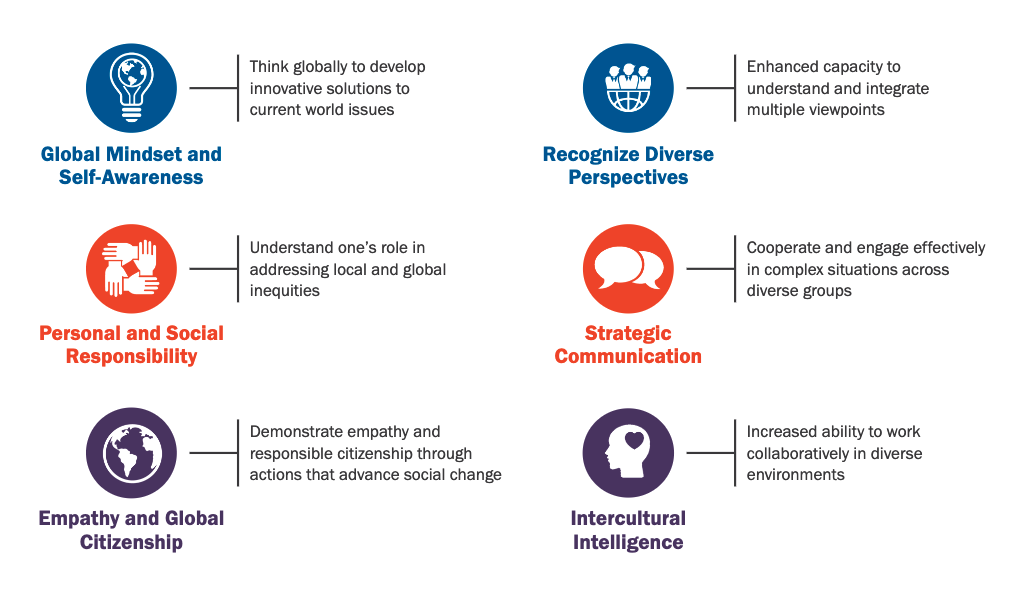Program Learning Outcomes and Curriculum
Your program curriculum is designed to ensure graduates acquire the essential skills, knowledge, and attitudes appropriate and relevant to both the needs of students and employers.
Program Vocational Learning Outcomes
Program vocational learning outcomes describe what graduates of the program have demonstrated they can do with the knowledge and skills they have achieved during their studies. The outcomes are closely tied to the needs of the workplace. Through assessment (e.g., assignments and tests), students verify their ability to reliably perform these outcomes before graduating.
The program vocational learning outcomes for the Broadcasting – Radio, Television, Film and Digital Media Program are
- create, coordinate and support audio, television, video and digital media productions for multiple platforms, in studio and on location, using industry standard production equipment.
- deliver and support audio, video, television and digital content via streaming or broadcast media in formats that meet current industry standards.
- plan and prepare radio, television and/or digital content in accordance with industry standards and regulations.
- monitor, maintain and evaluate the technical quality of productions using resources, equipment and protocols which meet with industry standards.
- develop and implement marketing and advertising strategies to promote productions and/or a station’s brand and products.
- plan, create and deliver interviews, scripts and reports for a variety of radio, television and/or digital media productions.
- use project management and business skills to complete productions on time and on budget.
- keep current with the needs of the broadcast and digital media industries using strategies that enhance work performance and guide professional development.
- conduct work safely in accordance with all applicable acts, regulations, legislation, and codes to ensure personal and public safety.
- enhance audio, television, digital, web and/or video productions using a variety of post-production skills, tools and techniques.
- present live programming on air to relay various types of content.
Essential Employability Skills Outcomes
Essential Employable Skills (EES) are skills that, regardless of a student’s program or discipline, are critical for success in the workplace, in day-to-day living, and for lifelong learning. Graduates will reliably demonstrate abilities in six skill categories:
Global Citizenship and Equity Learning Outcomes
There are six Global Citizenship and Equity (GCE) learning outcomes integrated into Diploma and Advanced Diploma programs as a component of Centennial’s Signature Learning Experience (SLE). The SLE reflects the College’s promise to provide students with a distinctive and inclusive educational experience that builds on a foundation of global citizenship, equity, and social justice. Certificate and Graduate Certificates also include at least two GCE learning outcomes. The GCE learning outcomes are:
- Identify one’s role and responsibilities as a global citizen in personal and professional life.
- Identify beliefs, values and behaviours that form individual and community identities and the basis for respectful relationships.
- Analyze issues of equity at the personal, professional, and global level.
- Analyze the use of the world’s resources to achieve sustainability and equitable distribution at the personal, professional, and global level.
- Identify and challenge unjust practices in local and global systems.
- Support personal and social responsibility initiatives at the local, national, and global level.
Global Citizenship and Equity Portfolio
As a component of the SLE, Diploma and Advanced Diploma program students will complete the Global Citizenship and Equity (GCE) Portfolio. Building the GCE Portfolio is a process of documenting your GCE learning. Each item selected for inclusion in the portfolio demonstrates growth and understanding of Global Citizenship and Equity within your program of study.

Students are encouraged to develop their GCE Portfolio beginning in their first semester. You will add artifacts from coursework and accompanying reflections as well as artifacts arising from co-curricular activities, volunteering, etc. to your portfolio as you progress through the program. You are encouraged to use the ePortfolio tools available on eCentennial, as well as to develop an online professional portfolio presence through LinkedIn and/or other personal websites/blogs.
Curriculum Frameworks
The Broadcasting – Radio, Television, Film and Digital Media Program is completed with a final semester of Field Placement (internship). Field Placement is the capstone experiential learning in the program and follows five semesters of formal training in-class and working in the field on media projects.

